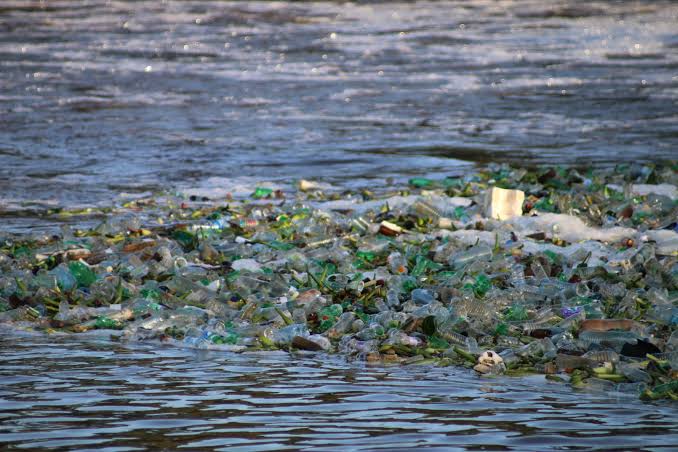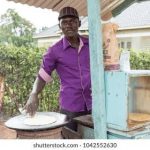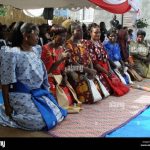Esther dipped her net into the Wairaka River, the water murky under Jinja’s dawn light. Once, her father had said, this river fed their family, its fish leaping like silver prayers. Now, her net pulled up more plastic bottles than tilapia—soda cans, polythene bags, a child’s toy tangled in weeds. She tossed a bottle aside, her hands trembling with anger. The river that once sang lullabies now choked on Kampala’s waste.
The river sang in my father’s youth, Clear as moonlight, fish leaping in truth. Now plastic strangles its gentle flow, Uganda’s shame in each bottle’s glow.*Her father, an aging fisherman, sat on the bank, mending his net. “This river was our life,” he murmured, his voice cracked like the dry earth. Esther remembered his stories—how the Wairaka shimmered, how her grandfather fished by starlight. Now, the stars reflected plastic glints. She posted on X: “@GreenJinja: Wairaka River drowning in plastic. Our fish are dying. #SaveOurRivers”(180 likes, 40 retweets). Replies came fast—@JinjaYouth: “This is heartbreaking. Let’s act!”—stirring her resolve.
At church that Sunday, Esther stood before the congregation, her voice steady. “This is our river,” she said, holding up a sack of plastic. “We clean it, or our children starve.” The pastor nodded, and by Monday, neighbors gathered—mothers with babies on their backs, students with gloves, boda riders with sacks. They waded into the shallows, pulling out bottles, wrappers, and broken sandals. By noon, heaps lined the banks, but the river still wept.*Polythene scars mar Wairaka’s face, A silent cry, a lost embrace. Who will mend what greed has torn? Uganda, your river is reborn.*Esther’s phone buzzed with X notifications: “@JinjaCares: Cleanup at Wairaka! Esther’s leading the fight. Join us! #CleanRivers” (150 likes, 30 retweets). @UgandaGreen: “Proud of this community!” The posts spread, drawing volunteers from nearby villages.
But as they worked, a factory upstream dumped more waste, the water turning a sickly brown. Esther’s hope dimmed. She tweeted: “@GreenJinja: Cleanup today, but factory pollution ruined it. Who’s accountable? #StopPollution” (200 likes, 45 retweets). @SkepticUG replied, “Factories dump worse than bottles. Fix that first,” a bitter truth she couldn’t ignore.
That night, Esther sat with her father, the sacks of plastic a silent witness. “We can’t fight alone,” she said. He nodded, recalling a village elder’s tale of unity against colonial taxes. Inspired, Esther called a meeting at the community hall. “We need bins, laws, accountability,” she urged. The room buzzed—fishermen, traders, even a schoolteacher—agreeing to petition the district. She posted: “@GreenJinja: Community meeting tonight. Demanding bins and action on Wairaka. #RiverJustice” (220 likes, 50 retweets). @TororoEco: “We’re with you, Esther!”—a growing chorus.
The next day, Esther marched to the town council, her sack of plastic as evidence. “Ban single-use plastics or give us bins,” she demanded, her voice echoing in the quiet room. The officer shrugged, citing budget constraints. Frustrated, she turned to X: “@GreenJinja: Council says no funds for bins. Wairaka deserves better. Share this! #BanPlastics” (250 likes, 60 retweets). The post went viral, with @UgandaActivist: “Shame on them! Let’s pressure the govt!” Photos of the cleanup and polluted river trended, shaming local leaders.
Weeks later, a small victory arrived—a pilot bin project funded by a local NGO, spurred by the X campaign. Esther led the installation, her father helping dig the foundations. The river’s edge began to clear, fish returning in tentative schools. She posted: “@GreenJinja: Bins are here! Wairaka’s healing, but the fight’s not over. #RiverHope” (300 likes, 70 retweets). @JinjaMama: “Thank you, Esther. Our children can fish again!”—a balm to her weary spirit.
But the battle wasn’t won. Upstream factories still leaked, and plastic flowed with every rain. Esther organized monthly cleanups, each one a poem of resilience. She wrote:The Wairaka weeps, yet fights to breathe, Through plastic’s grip, it finds reprieve. Hands unite, voices rise as one, Uganda’s river, our battle won.
One evening, she sat by the river, its waters reflecting Jinja’s lights. A young boy joined her, his net catching a small tilapia. “For you,” he said, smiling. Esther’s eyes welled—hope, fragile but real. She tweeted: “@GreenJinja: A boy caught fish today. Wairaka lives. Keep fighting with me. #SaveOurRivers” (280 likes, 65 retweets). @HopefulUG: “This is progress. Let’s keep it going!”—a promise to carry forward.
The river’s healing was slow, a mirror to Uganda’s struggle. Esther knew factories and apathy loomed, but each cleanup, each post, each fish was a step. Her father’s hand rested on hers. “You’ve given it a voice,” he said. And with X as her megaphone, Esther vowed to keep singing for Wairaka, for all of Uganda’s forgotten waters.
This post was created with our nice and easy submission form. Create your post!





